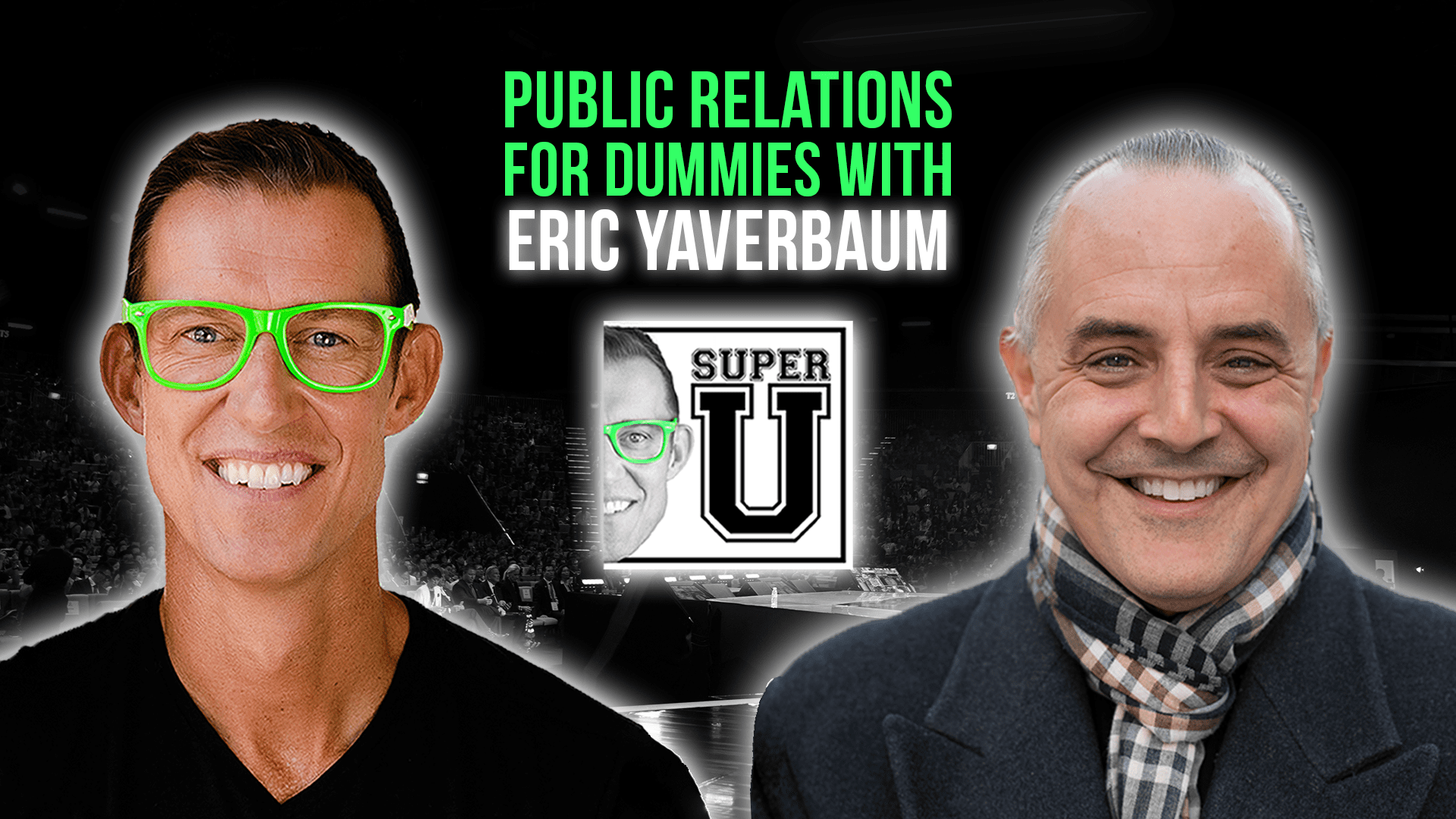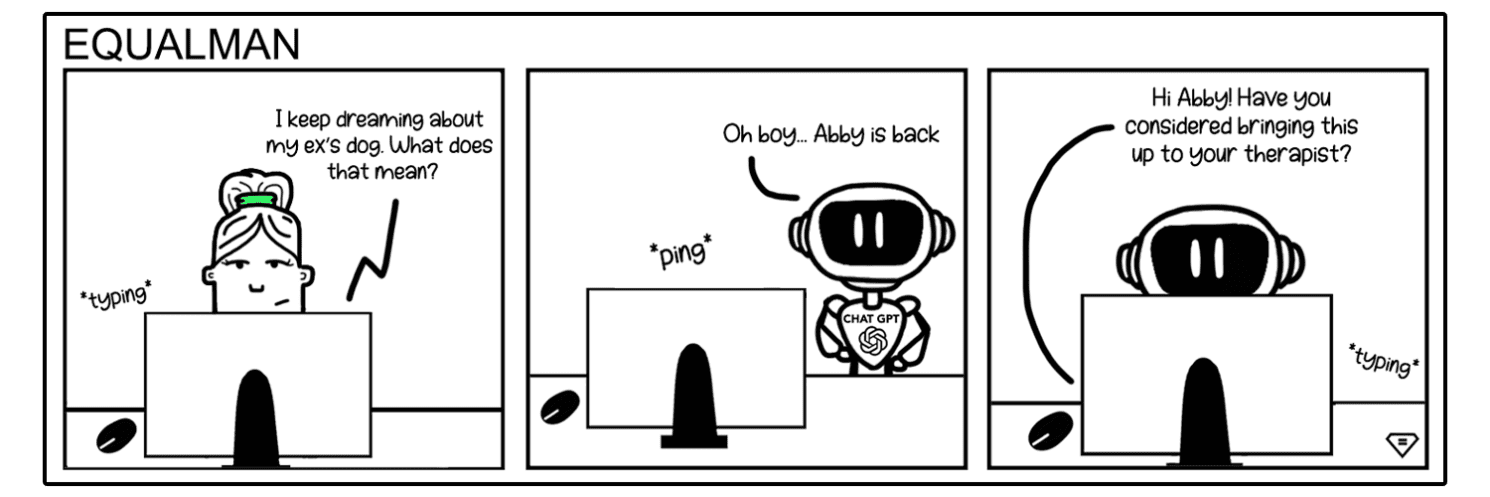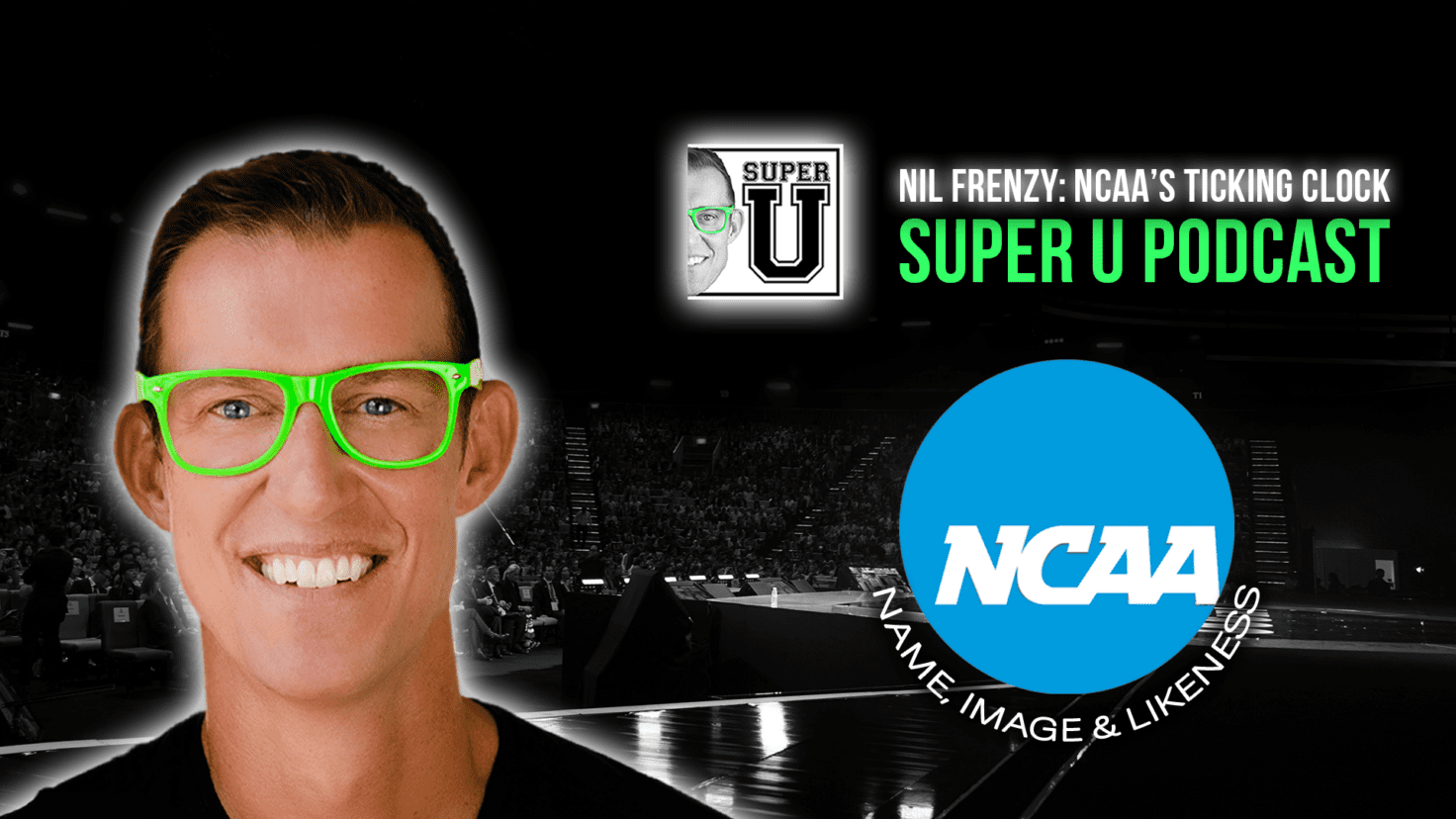Public Relations for Dummies with Eric Yaverbaum
Today, Erik sits down with Eric Yaverbaum. Yaverbaum is the CEO of Ericho Communications. He’s a communications, media, and public relations expert with over 41 years in the industry. Yaverbaum is also a bestselling author who literally wrote the book on public relations — the industry-standard bestseller, PR for Dummies — as well as six other titles. They discuss Yaverbaum’s journey to becoming a bestselling author and public relations expert, the number one secret in Yaverbaum’s book, Leadership Secrets of the World’s Most Successful CEOs, and what to do if someone posts negative content about you or your business online.
5x #1 Bestselling Author and Motivational Speaker Erik Qualman has performed in over 55 countries and reached over 50 million people this past decade. He was voted the 2nd Most Likable Author in the World behind Harry Potter’s J.K. Rowling. Qualman is also the inventor of the bestselling board game Kittycorn.
Need a sneak peek? Below are the main takeaways from the episode.
Public Relations for Dummies with Eric Yaverbaum
Episode Preview:
” And messaging is what my business is all about. The “get out the message” is what it’s about. Like right now I’m getting out my message. But that is what doing good PR is all about. It’s about the message. But you can’t get your message out if you don’t get exposure if people aren’t interested in interviewing you. So how do you do that? So an 85, you know, I have this same theory, you know, I’m 24 years old, a newbie in the business, that no corporate experience, you know, no real experience at all. I mean, the textbooks that I learned out of, which is all that I knew was from textbooks. The year after I graduated college, we’re using case studies from things that I was doing in the real world. But I learned from textbooks, they didn’t teach me anything, they taught me how to run General Motors, and one person gets that job. Everybody else has to figure out how to do it for their company. So the philosophy was show up where the news is already happening in 1985. I knew and I’m a big sports fan. I have an enormous sports practice now. I would say ironically, but probably not. I’m interested in sports. I mean, we do a lot with the NFL and professional football, but at the time, I’m just a regular fan with a struggling business that’s working out of my living room.
I have this philosophy. I know there’s a pending Major League Baseball strike. I know that’s coming. Labor disputes and professional sports, they’re always covered exactly the same. Fans are always pissed off, you know, we can we just want to be able to afford a ticket and a hotdog. And you know, when you take your family to a game, you’re spending a fortune. We cannot relate to the wealthy owners, you know, the wealthy players having a fight about money that pisses us off. I know that that’s coming. We had almost two months because of the constant friction between the owners and the players as they’re trying to work out this labor dispute history in professional sports, it was always the same. The fans were always pissed. They said then they were done. They’re never watching the sport again, without exception until 1985. Fans not only came back, they came back in record numbers, more fans actually came back after the labor dispute… So in 85, we, my partner and I out of our living room, formed a national Citizens Action Group, it was called Strike Back. The premise of the group was to become the voice of the fans because I know the way that these things are covered. Get the owner’s perspective, get the player’s perspective, and then find some guy on the street who’s a fan who’s angry. We form a national Citizens Action Group called Strike Back, we ask people to send us letters. The letters were to say they will honor a boycott our boycott was “Okay, it’s fine. You’re allowed to have a labor dispute, you go out on strike. God bless. Go ahead. When you come back to play baseball, we’re going to strike one game for every game that you strike.” That was the concept.
We call it Peter Ueberroth’s office, he was the commissioner at the time. He doesn’t take our call, of course. Four days later, USA Today is writing a story about this fans activist group. I mean, the fans activist group was two of us at the time, right? We got hundreds of 1000s of letters from across the country, from people saying they would honor our boycott. We dumped the mail off on Ueberroth’s doorstep every day with all the camera crews there. We became the voice of the fans. And I didn’t the thing about it was is I didn’t really care so passionately about the baseball strike, but I can’t so passionately about was Larry King, Ted pop or asked me I mean, we, we did everything we were featuring, seen. We’re on the cover of USA Today. People, you know, the caliber and level of Capo and Larry King asked me, you know, why are you doing this, Eric? Like, what’s the point? And my answer was, this is what I do for a living. I get people on television, radio talk shows, I get them in newspapers and magazines. I’m just using the same avenues that I would for any of my clients…”
Connect with Eric Yaverbaum:
IG: www.instagram.com/eric_yaverbaum (@eric_yaverbaum)
Facebook: www.facebook.com/erichocommunications
LinkedIn: www.linkedin.com/in/ericyaverbaum
Click here to subscribe and listen to the full episode.

To ensure you don’t miss future episodes, subscribe to our podcast by clicking here >> Super U Podcast. We hope these tips help unlock and unleash your inner superpower!
The Super U Podcast is hosted by #1 bestselling author and Motivational Speaker Erik Qualman.





